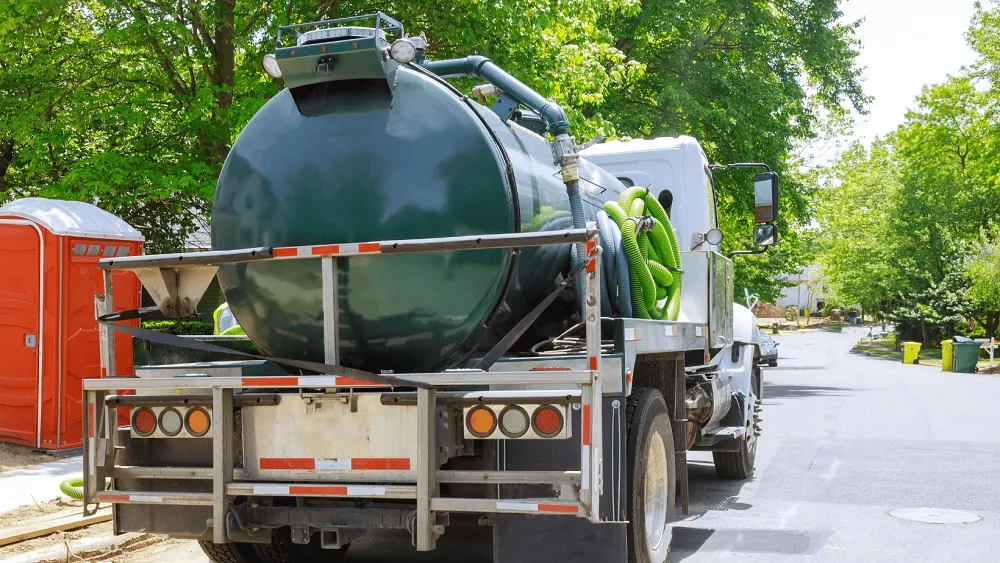Owning a home is a significant investment, and with that investment comes the responsibility of maintenance. While many aspects of home maintenance are well-known and regularly attended to, one critical aspect that often remains out of sight and out of mind is the septic system. However, ignoring your septic tank can lead to costly repairs and environmental issues. In this article, we will highlight the importance of septic tank pumping as a must-have in your home maintenance routine.
The Vital Role of Septic Tanks
Before delving into the importance of septic tank pumping, it’s essential to understand the role of septic tanks in your home’s wastewater treatment process. Septic tanks are underground containers that hold and treat the wastewater generated by your household. They serve as the initial stage in the treatment process before the treated effluent flows into the drain field and ultimately re-enters the environment.
Here’s how septic tanks work:
- Wastewater Collection: All the water that goes down your drains, toilets, and sinks flows into the septic tank.
- Separation: Inside the septic tank, solids settle at the bottom, forming a layer of sludge, while lighter materials like oils and fats rise to the top, creating a layer of scum. In the middle, treated effluent remains.
- Biological Treatment: Beneficial bacteria in the septic tank break down the organic matter in the wastewater, transforming it into simpler compounds. This biological treatment is crucial for effective wastewater purification.
- Effluent Discharge: The treated effluent, which is relatively clear and free of solids, exits the septic tank and flows into the drain field. There, it undergoes further natural purification before re-entering the groundwater.
Why Septic Tank Pumping is Essential
While the septic tank system is designed to be self-sufficient to some extent, it is not maintenance-free. Over time, solid waste accumulates in the tank as sludge, and scum builds up at the surface. This accumulation reduces the tank’s capacity for wastewater and can lead to several problems, making septic tank pumping a critical part of home maintenance:
1. Preventing System Failure
One of the most compelling reasons for septic tank pumping is to prevent system failure. When the tank becomes overloaded with sludge and scum, it loses its ability to effectively separate and treat wastewater. This can result in backups, slow drains, and even sewage surfacing in your yard or home, which are not only unpleasant but also costly to repair.
2. Extending System Lifespan
Regular septic tank pumping significantly extends the lifespan of your septic system. By removing accumulated solids, you reduce the wear and tear on your system, potentially saving thousands of dollars in repair or replacement costs.
3. Protecting the Environment
A well-maintained septic tank ensures that treated effluent entering the drain field is relatively free of solids and pollutants. This not only protects your property but also safeguards the environment. Properly treated effluent can percolate safely into the groundwater without posing a risk to nearby wells or bodies of water.
4. Compliance with Regulations
Many local and state regulations govern septic system maintenance and pumping schedules. Failure to comply with these regulations can result in fines and legal issues. Keeping up with septic tank pumping ensures that you remain in compliance with local regulations and avoid potential legal troubles.
5. Cost Savings
While septic tank pumping is an expense, it is a modest one compared to the potential costs of system failure or extensive repairs. Regular maintenance, including pumping, is a cost-effective way to keep your septic system running smoothly and avoid more significant financial burdens down the road.
How Often Should You Pump Your Septic Tank?
The frequency of septic tank pumping depends on several factors, including:
- Tank Size: Smaller tanks fill up more quickly and require more frequent pumping.
- Household Size: The more people in your household, the more wastewater your system handles, necessitating more frequent pumping.
- Water Usage: High water consumption, such as excessive laundry or long showers, can increase the frequency of pumping.
- Tank Condition: Older or poorly maintained tanks may require more frequent pumping.
- Local Regulations: Some areas have specific regulations governing septic tank pumping intervals.
On average, most homeowners should aim to pump their septic tanks every 3 to 5 years. However, it’s essential to have a professional assess your system and recommend a pumping schedule tailored to your specific circumstances.
Professional Septic Tank Pumping vs. DIY
While some homeowners may consider attempting DIY septic tank pumping to save money, it’s generally recommended to hire professional septic tank pumping services. Here’s why:
- Safety: Pumping a septic tank can be hazardous due to toxic gases and the risk of falling into the tank. Professional services have the necessary safety equipment and training to ensure a safe and efficient pumping process.
- Equipment: Professionals use specialized equipment and vehicles designed for septic tank pumping. This equipment ensures that the job is done correctly and efficiently.
- Expertise: Professional pumpers have the knowledge and experience to inspect your septic system for any issues, provide maintenance recommendations, and ensure that the pumping process complies with local regulations.
- Proper Disposal: Septic tank waste must be disposed of properly and in compliance with local regulations. Professional services are well-versed in these regulations and ensure that waste is disposed of safely.
- Preventing Damage: Attempting DIY septic tank pumping without the proper equipment and knowledge can lead to damage to the tank or its components, resulting in costly repairs.
Conclusion
Incorporating septic tank pumping into your home maintenance routine is a wise and responsible choice. It protects your property, prevents system failure, and contributes to environmental preservation. By scheduling regular septic tank pumping with professional services and adhering to recommended intervals, you ensure the longevity and efficiency of your septic system. Remember, septic tank pumping is not just an expense; it’s an investment in the health and longevity of your home.

